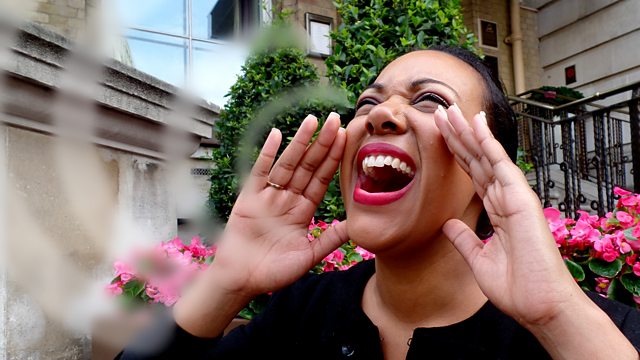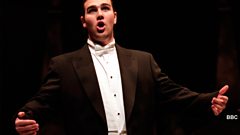The Power of the Human Voice
How we use our voice and how our voices are used.
The human voice is a thing of great power and persuasion; we use it to speak to one another, to sing and cry, to laugh and scream. But our voices - which are as ancient as humanity itself - are also at the forefront of the very latest developments in technology. Increasingly, our voices activate machines, are used to prove innocence or guilt in criminal trials, to provide a means of digital communication for people with voice disorders. With Suzy Klein to discuss the human voice are the cognitive psychologist Diana Deutsch the acoustic, forensic and voice analysis expert Professor Peter French and the opera singer Anna Devin.
Photo: A shouting lady (credit: Shan Pillay)
Last on
Clip
-
![]()
The mystery of the human voice.
Duration: 01:10
Chapters
-
Peter French
What does a forensic voice analyst do?
Duration: 08:47
Diana Deutsch
How closely related are vocal patterns that express happiness and anger?
Duration: 13:06
60 Second Idea
Bring back the monocle.
Duration: 03:04
Anna Devin
Describing her voice and how she uses it to sing.
Duration: 14:00
Peter French
![Peter French]()
Professor Peter French is the UK鈥檚 most experienced expert in the field of forensic speech and聽聽 acoustics and works at the Department of Language and Linguistic Science, University of York and is chairman of J P French Associates.聽 He has worked in the field for 30 years.
Prof. French has provided evidence in thousands of cases across the whole range of forensic speech and audio.聽 His evidence has been for UK Crown Courts and courts across the world, including: Australia, Canada, Ireland, Germany, Ghana, Gibraltar, Hong Kong, Mauritius, The Netherlands, New Zealand, Singapore and the United States of America.聽 He has worked on cases heard by the International War Crimes Tribunal and the Bloody Sunday Inquiry in the UK. He鈥檚 interested in how we can break down the component parts of the human voice in order to recognise who is speaking and talks about developments in voice recognition and analysis.Diana Deutsch
![Diana Deutsch]()
Diana Deutsch is a British-American perceptual and cognitive psychologist, born in London, England. She is currently Professor of Psychology at the University of California, San Diego, and is one of the most prominent researchers on the psychology of music. She is probably most famous for the musical and auditory illusions that she鈥檚 discovered which include the octave illusion, the scale illusion, the glissando illusion, the tritone paradox, the phantom words illusion, the speech-to-song illusion and the cambiata illusion, among others.
She also studies the cognitive foundation of musical grammars, the ways in which we hold musical pitches in memory, and the ways in which we relate the sounds of music and speech to each other. In addition, she is highly acclaimed for her work on absolute pitch, or perfect pitch, which she has shown is far more prevalent among speakers of tone language. She talks about the importance of pitch in the human voice and how our voices have evolved.Anna Devin
![Anna Devin]()
Irish soprano Anna Devin is fast becoming established as one of today鈥檚 brightest young sopranos, highly praised for her strong stage presence and vocal versatility. She sings a wide repertoire of both sacred and secular works, and she has appeared as part of the 大象传媒 Proms with the Hall茅 Orchestra under Sir Mark Elder in Parsifal, the London Handel Festival, Brighton Early Music Festival, Belfast Festival as well as with the RT脡 NSO and Ulster Orchestra.
Anna is dyslexic and talks about how this has affected her approach to singing, especially in foreign languages and more generally how she thinks about her voice.Sixty Second Idea to Change the World
![Sixty Second Idea to Change the World]() Peter French wants to bring back the monocle. A cheap, stylish solution for people with a single eye disorder.
Peter French wants to bring back the monocle. A cheap, stylish solution for people with a single eye disorder.Broadcasts
- Mon 20 Jul 2015 01:05GMT大象传媒 World Service Online
- Tue 21 Jul 2015 08:05GMT大象传媒 World Service Online
What is the role of libraries in the digital age?
Podcast
-
![]()
The Forum
The programme that explains the present by exploring the past








